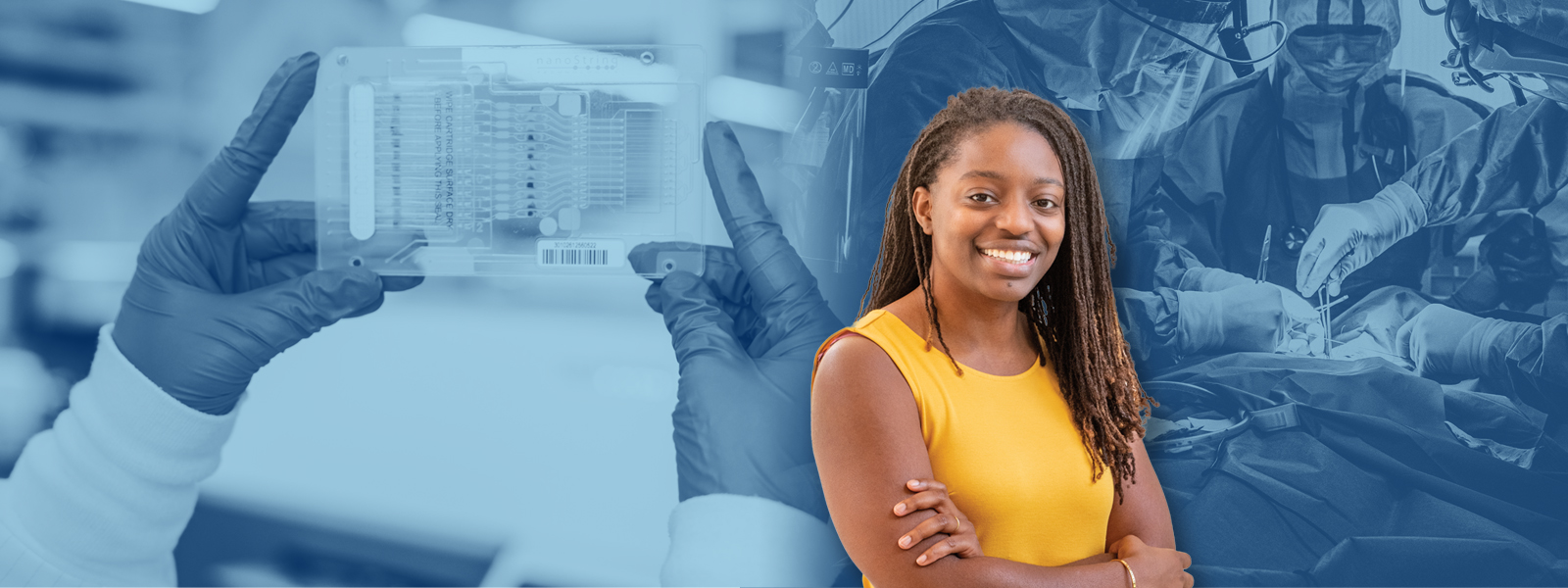Erika Moore, Ph.D., holder of the Rhines Rising Star Larry Hench Assistant Professor in the Department of Materials Science & Engineering, has received the prestigious National Institutes of Health Maximizing Investigators’ Research Award (MIRA) from the National Institute of General Medical Sciences. Dr. Moore and her team will use the five-year, $1.85 million award to address critical gaps in understanding the relationship between ancestry and cell responses in wound healing. In the long term, this research will lead to biomaterial models of health disparities for the improved identification of wound healing risks and outcomes.
Compared to people of European ancestry, people of African ancestry are more likely to develop excessive scar tissue, or keloids, as wounds heal. An individual’s ancestral background also dictates fibrosis and chronic inflammation.
“While we know ancestry influences clinical wound healing, we do not understand how it influences cell function or cell-to-cell communication in the wound response,” Dr. Moore said. “We want to learn exactly how ancestry informs differences at the cellular level.”
When comparing cell responses between patients of different self-identified ancestry, e.g., those of African vs. European background, Dr. Moore’s preliminary data demonstrate differences in the genes expressed in each person’s immune cells. To identify ancestral components beyond self-identification, her team of researchers will also investigate genetic ancestry and sociocultural factors to quantify ancestry.
“To determine how each ancestral component influences cell function, we will conduct RNA sequencing and proteomic methodologies in tandem with mechanistic inhibitors to assess cell function differences in monocytes and progenitor stem cells,” Dr. Moore said.
While African ancestry can correlate with elevated scar formation, previous clinical studies do not provide mechanistic insights into the cellular interactions occurring within a wound.
“We’ll address this data shortfall by using biomaterials to replicate a wound environment,” Dr. Moore said. “Injury responses necessitate cell-to-cell communication, and using biomaterial models to simulate a wound environment will allow us to assess how ancestry influences that communication in these conditions.”
MIRA awards are intended to provide investigators with greater stability and flexibility in funding while enhancing their ability to take on ambitious scientific projects and approach problems more creatively.
“We are so excited and honored to be chosen for this MIRA award,” Dr. Moore said. “It moves our work towards the promise of personalized medicine, pushing the intersection of lived experiences and clinical outcomes by allowing us to answer how one’s ancestry contributes to differences in how wounds heal.”
